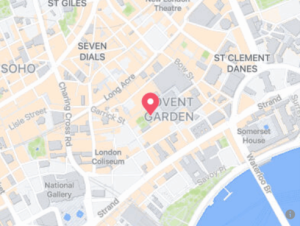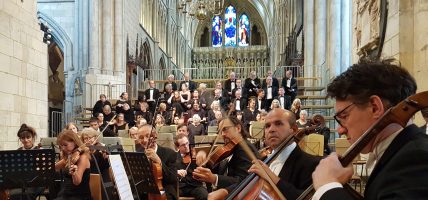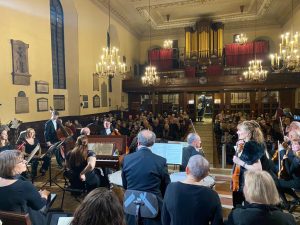J.S.Bach
Christmas Oratorio
Parts 1-3
Saturday November 20th 6.30pm
St Pauls Church, Covent Garden, Bedford Street, WC2E 9ED
Samantha Crawford – Soprano
Lyneet Alcantara – Mezzo Soprano
Bene’t Coldstream – Tenor
Alistair Kirk – Bass
Conductor – Jon Cullen
with the All Saints Orchestra
Tickets £25 available at the www.actorschurch.org
Bach’s Christmas Oratorio is in six parts covering the three days of Christmas and Feast of the circumcision, The Magi and Feast of the Epiphany. Traditionally, the parts 1 – 3 are performed before Christmas and parts 4 – 6 after Christmas. Complete with sparkly trumpets and memorable melodies the Christmas Oratorio represents Bach at his joyful best.
St Paul’s Church is a church located in Bedford Street, Covent Garden, London, WC2E 9ED. It was designed by Inigo Jones as part of a commission for the 4th Earl of Bedford in 1631 to create “houses and buildings fit for the habitations of Gentlemen and men of ability”. As well as being the parish church of Covent Garden, the church has gained the nickname of “the actors’ church” by a long association with the theatre community.Completed in 1633, St Paul’s was the first entirely new church to be built in London since the Reformation. Its design and the layout of the square have been attributed to Inigo Jones since the 17th century, although firm documentary evidence is lacking. According to an often repeated story, recorded by Horace Walpole, Lord Bedford asked Jones to design a simple church “not much better than a barn”, to which the architect replied “Then you shall have the handsomest barn in England”.The building is described by Sir John Summerson as “a study in the strictly Vitruvian Tuscan Order” and “almost an archaeological exercise”. The description of a Tuscan or Etruscan-style temple in Vitruvius, which Jones closely follows in this building, reflects the early forms of Roman temple, which essentially continued Etruscan architecture, though quite what Vitruvius intended by his account has divided modern scholars. It has been seen as a work of deliberate primitivism: the Tuscan order is associated by Palladio with agricultural buildings.


